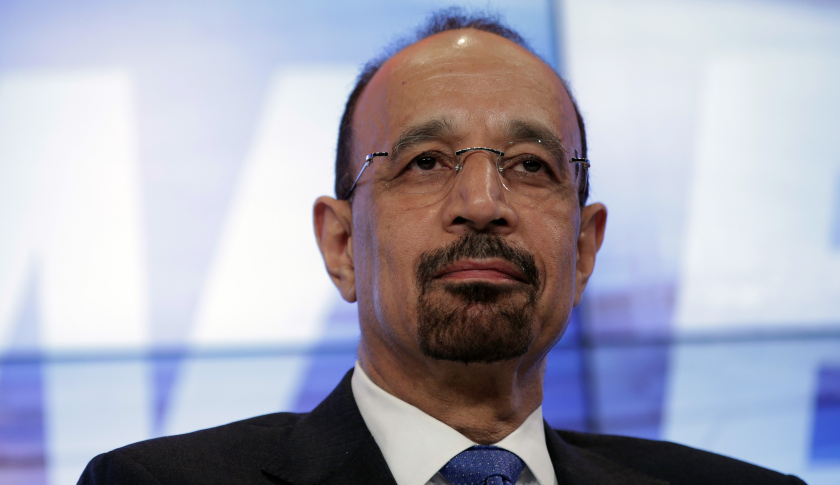Khobar – After a long fasting summer day, Saudi Minister of Energy, Industry and Mineral Resources Khalid al-Falih entered Houston’s Museum of Fine Arts in Bissonnet street to break his Ramadan fast.
But Falih wasn’t there to enjoy the art. He was meeting with reporter of Huston Chronicle newspaper for his first newspaper interview since becoming a minister in May.
During the interview, Falih said that the Kingdom is adamant to bring its non-oil exports up and Saudi Vision 2030 will in no way impede the development of the oil economy in Saudi Arabia.
Falih ensured that investments will expand to other sections of the economy outside of oil production.
“We’re not afraid of it, but we’re also realists and we know that oil will be a significant part of the energy mix for decades to come,” Falih said.
He added that even if the share of oil goes down from 30 to 25 percent, 25 percent of a much bigger global demand means a much higher absolute number of barrels that will be in demand by 2030 or 2040.
Minister of Energy told the Chronicle that the oversupply in oil market has disappeared. “We are out of it,” he commented.
He went on to say that demand is high in countries like India and parts of Asia while crude production has fallen in United States and Nigeria; thus closing the one million-barrel a day gap between supply and demand.
Falih added that the Kingdom may have to wait for the second half of the year and next year to see how the market will recover.
Huston Chronicle interviewed Falih in Huston, Texas where he is visiting Motiva Enterprises, Saudi Aramco subsidiary. Motiva owns Port Arthur Refinery in Texas, U.S largest refinery.
Falih along with Minister of Trade and Investement Majid al-Qasabi, Minister of Finance Ibrahim al-Assaf, and Managing Director and Secretary General of the Board at the Public Investment Fun Yasir al-Rumayyan are accompanying Deputy Crown Prince Mohamemd bin Salman in his visit to U.S. where her met with U.S. President Barrack Obama.
Minister Falih said that despite the surplus in oil global production and lower prices over the past two years, the market is still obsessed by the oil key producing countries of the world.
He explained that this is due to the fact that the oil price is subject to high and low cycles, and everyone realizes that after ending the current price decline cycle, there will be a need for a country such as Saudi Arabia to balance supply and demand.
Falih pointed out that the Americans found that the Kingdoms’ policy is “stable and more responsible in terms of maintaining production capacity and its surplus in the ability to fill any shortage, and that the Kingdom is seeking to balance the supply and demand, and maintain moderate prices for producers and consumers.”
